LECTURERS
From the University of Padua
Federico Reggio
(PhD)is currently senior researcher at the University of Padua, Italy, where he teaches Philosophy of Law. Lawyer and mediator, he has been involved for a decade in the training of mediators in Italy, including lectures on penal mediation and Restorative Justice at the Italian Ministry of Justice’s Superior Institute on Penal Execution “Piersanti Mattarella”. He holds a PhD in Philosophy of Law, Method and Legal Traditions and is author of several publications in legal-philosophical matters, including a book on Restorative Justice (Giustizia Dialogica 2010, awarded in 2012 by the Italian Society of Legal Philosophy) and chapters in international edited books such as Civilising Criminal Justice (Blad-Cornwell-Wright 2013) and Critical Restorative Justice (Aersten-Pali 2017). A longtime member of the European Forum for Restorative Justice, where he is currently member of the Research Group, dr. Reggio is scientific director of the bilingual online journal Mediares, specialized in restorative culture and conflict transformation, and co-director of the book series Filosofia & Giustizia at Primiceri editore, Italy. Member of the research group “Jurisprudence, Ethics and Legal Technologies” at Department of Private Law and Critic of Law, University of Padua, he is the referent of the same University at European Forum for Restorative Justice’s (European Research Networks). He is the scientific director of the virtual Winter School “Transforming 21st century conflicts”.
Adriano Zamperini
is professor of Psychology of Violence and Psychology of Social Unrest at the University of Padua, where he is also director of the Center of Research and Services for Migrations and Intercultural Studies (CIRSIM) and Director of the Fabio Metelli Biblioteque. His research has deepened the comprehension of human action in extreme situations (including genocide), various forms of social exclusion, of violence and oppression, and the social psychology of well-being and unrest. He is in charg of the section “Memoria Viva” at the Andrea Devoto Foundation. Among his publications, he cooperated to several chapters of the Encyclopedia of Psychology (ed. U. Galimberti) and the following monographies: Psicologia dell'inerzia e della solidarietà (2001, with Ines Testoni), Psicologia sociale (2002), Prigioni della mente (2004), L'indifferenza (2007) e L'ostracismo (2010).
Paolo Sommaggio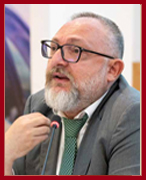
is Professor (awarded with the national scientific qualification as Full Professor) at the University of Trento where he teaches Legal Methodology and Sociology of Law. He is a member of the teaching staff of the PhD School in Law of the University of Padua, the Postgraduate School for Legal Professions of the Universities of Trento and Verona, he teaches in the forensic schools of Trento, Brescia, Bolzano, Pordenone and Belluno, he teaches also for the Public Health School of Regione Veneto. He is advisor of Ministry of Justice. He is a member of the scientific committee of the editorial series “Diritto Moderno ed Interpretazione Classica” (FrancoAngeli), “Jura. Temi e problemi del diritto” (ETS) and “Quadrato delle Opposizioni” (Mimesis).
Research Areas: Biolaw (Transplants, Genetics, Neuroscience); Philosophy of the Judiacial Debate (Debating, Dialectic, Rhetoric); Legal Methodology (Socratic method and dialectical method).
Debora Provolo
is Associate Professor of Criminal law at the University of Padua (Italy), where she is currently teaching “Criminal law and economics” (School of Law) and “Restorative justice” at the course “Trasformazioni del Welfare State e diritti sociali” (School of Economics and Political Science). She is also lecturer at the Specialization School for the Legal Professions and at the Master in “Urban manager for security, safety and violence management” (University of Padua). She holds a PhD in “Legal sciences: Italian and comparative criminal law”, awarded by the University of Turin in 2006. She is a member of the editorial board of the series “JusQuid” edited by Padova University Press; she is also a member of editorial boards of the journal Responsabilità Medica. Diritto e Pratica Clinica and of the Journal of Ethics and Legal Technologies (JELT). She has authored many publications, including the monograph L’identità genetica nella tutela penale della privacy e contro la discriminazione (2018). Her main research interests are restorative justice, criminology, economic criminal law, criminal law and new technologies, privacy, criminal bio-law.
Letizia Mingardo
is a Researcher in Philosophy of Law at the Department of Private Law and Critique of Law of the University of Padua. She teaches Legislation and Animal Protection at the Department of Comparative Biomedicine and Food Science, and Methodology and Legal Informatics at the Department of Private Law and Critique of Law. Her main fields of research are Critics of Law & Technology, on the one hand, and Biolaw & Bioethics, on the other. In this field, in 2012 she won the Ruffini Prize awarded by the Italian Accademia dei Lincei. Her current research interests deal with digital justice, online dispute resolution and the concept of lex informatica.
Elena Cadamuro
is a Research Fellow in Criminal Law (her current research project is called “The response to crime between repressive demands and reparative needs: intervention perspectives on the issue of gender-based and domestic violence”) at the Department of Public, International and European Union law (University of Padua). As an adjunct professor, she teaches “Criminology and criminal policy” (School of Human and Social Sciences and Cultural Heritage). She is also lecturer (Criminal Law module) at the Specialization School for the Legal Professions and at the Master in “Urban manager for security, safety and violence management” (University of Padua). She holds a PhD in Law, awarded by the University of Padua in 2017.
She is a member of the editorial board of the Padova University Press’s series JusQuid. Her main research interests are juvenile and family criminal law, exploitation of human beings, restorative justice and criminal bio-law. On these topics she has been speaker at conferences in Italy and abroad and she has authored many publications, including the monograph “L’irrilevanza penale del fatto nel prisma della giustizia riparativa” edit by Padova University press, 2022.
Marialuisa Menegatto (PhD)
is a social and clinical psychologist. She graduated from the University of Padua and obtained her PhD from the University of Verona. She is also qualified to practice of Psychotherapy.
She is currently a researcher and assistant professor in Social Psychology at the University of Padova, Department of Philosophy, Sociology and Applied Psychology (FISPPA). In the same University and Department with Prof. Adriano Zamperini she is co-founder and co-coordinator of the research project The Community Health Resilience (CHR) on the psychosocial consequences of PFAS contamination in Veneto Region; coordinator of the Master in Urban security and violence management (https://uel.unipd.it/en/masters/suv-urban-security-and-violence-management/); affiliate member of the Research Group "Social psychology of security: individuals, groups, organizations".
She was a member of the research group "Violence, total institutions and torture" (FISPPA Department 2016-2018), and of the "Multidisciplinary laboratory on the genealogy of violence" (FISPPA Department & University of Bologna 2011-2014).
In general, her main field of research are social psychology of environmental, urban psychology, and how people and communities establish connections with the context of life to promote sustainable coexistence. Her specific lines of research concern the environment, psychological well-being and social discomfort (distress and trauma), violence and community conflicts, and the relationships between crises/disasters and psychological consequences in the community.
More recently she is also involved in the psychology of climate change and people's social and emotional responses to changes in the natural and urban environment. She is also involved in the social psychology of justice and social care.
From other Universities
Howard Zehr (PhD)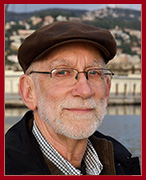
Widely known as “the grandfather of restorative justice,” Zehr began as a practitioner and theorist in restorative justice in the late 1970s at the foundational stage of the field. He has led hundreds of events in more than 25 countries and 35 states, including trainings and consultations on restorative justice, victim-offender conferencing, judicial reform, and other criminal justice matters. His impact has been especially significant in the United States, Brazil, Japan, Jamaica, Northern Ireland, Britain, the Ukraine, and New Zealand, a country that has restructured its juvenile justice system into a family-focused, restorative approach.
A prolific writer and editor, speaker, educator, and photojournalist, Zehr actively mentors other leaders in the field. More than 1,000 people have taken Zehr-taught courses and intensive workshops in restorative justice, many of whom lead their own restorative justice-focused organizations. Zehr was an early advocate of making the needs of victims central to the practice of restorative justice. A core theme in his work is respect for the dignity of all peoples.
In 2013 Zehr retired from active classroom teaching but continues to be involved in the field through the Zehr Institute of Restorative Justice at the Center for Justice & Peacebuilding, Eastern Mennonite University.
Barb Toews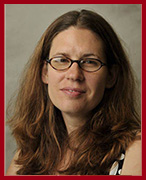
is Associate Professor in criminal justice at University of Washington Tacoma. Her research focuses on the relationships among restorative justice, environmental design, and psycho-social-behavioral-judicial and trauma healing outcomes for those who cause harm, those who have been harmed, and justice practitioners. Barb has numerous peer-reviewed journal articles, book chapters, and technical reports related to restorative justice, including its relationship to design. She is co-author, with Howard Zehr, of Learning from life: 22 lifers, 25 years later and Critical issues in restorative justice. She is also author of Little book of restorative justice for people in prison and the current series editor of the Little Books of Justice and Peacebuilding series. Prior to joining UWT, she was a community- and prison-based restorative justice and victim offender dialogue practitioner and educator.
Brunilda Pali (PhD)
is Senior Researcher at KU Leuven and Lecturer at the University of Amsterdam. She is currently a board member and Secretary of the European Forum for Restorative Justice (EFRJ). Together with Ivo Aertsen she has co-edited Critical Restorative Justice (Hart Publishing, 2017) and Restoring Justice and Security in Intercultural Europe (Routledge, 2018). She is currently working with Miranda Forsyth on the Handbook of Environmental Restorative Justice (Palgrave, 2022) and with Federico Reggio on an edited collection on Widening the Restorative Lens (forthcoming). Brunilda has studied Psychology at the University of Bosphorus in Istanbul, Gender Studies at the Central European University in Budapest, Cultural Studies at Bilgi University in Istanbul, and Criminology at KU Leuven Belgium. Her areas of interest are gender, critical social theory, social justice, restorative justice, cultural and critical criminology, and arts. Her research website is www.restorotopias.com (ORCID ID: https://orcid.org/0000-0002-2280-6625).
Leah Koumentaki (PhD)
successfully completed her doctoral studies in Criminology at the University of Essex in 2022. Leah conducted the first comprehensive and systematic research on the Cretan Sasmos, which she concluded is a vernacular Restorative Justice process. Conducting an ethnographic study, her research highlights how Sasmos is closely related to the tradition of justice in Crete while until today is employed into highland communities of the island, predominately in lieu of the operation of the Greek judicial authorities. Prior to her doctoral studies, Leah co-ordinated research projects on Restorative Justice and other topics related to criminology, whereas during her doctoral research she was involved into teaching as an Assistant Lecturer in Criminology and Sociology, both at University of Essex and Royal Holloway University of London. Currently works as a Teaching Fellow in Criminology at the University of Keele, UK. Her areas of research interest are cultural and critical criminology, indigenous and customary traditions to justice and punishment, restorative justice, zemiology, southern and green criminology, postcolonial studies and post-colonial feminism.
Anna Matczak
is appointed as a lecturer in comparative criminology at the Hague University of Applied Sciences, Netherlands. She holds a Ph.D. from the Department of Sociology, LSE. Her doctoral research discusses how lay people in Poland understand punishment and justice and how these understandings can shed light on the viability of restorative justice in the Polish context. Since the beginning of 2019, she has been involved in a collaborative project: Restorative Justice: Strategies for Change, which aims to encourage the development of restorative justice in Europe. Since November 2019, she has been a member of the Research Committee, European Forum for Restorative Justice. In 2020 she was appointed Restorative Justice Mentor and since then she has given regular advice to the Wrocław Restorative Justice Board on how the Wrocław Municipality can join the network of restorative cities and popularise restorative justice locally. In 2021 she joined the THUAS Centre of Expertise on Global Governance where she is looking into the concept of plural policing during health emergencies and natural disasters.
Barbara Warwas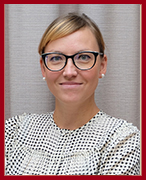
is a lector (professor of practice) in Multilevel Regulation at The Hague University of Applied Sciences (THUAS). Barbara has long been engaged in advancing dispute resolution skills among students and professionals with a view that those are transferable skills relevant for all professionals and citizens. She is the founder of the student-led initiative Arbitras, the hub “for all things ADR.” Barbara is the author of The Liability of Arbitral Institutions: Legitimacy Challenges and Functional Responses published by Springer in 2016. In 2014, she worked as a drafter, researcher, and administrator for the ground-breaking study on the “Legal Instruments and Practices of Arbitration in the EU and Switzerland,” commissioned by the European Parliament. Barbara has a Ph.D. in Law from the European University Institute (Florence, Italy). Before joining THUAS, Barbara worked as visiting counsel in the litigation department at GE Oil & Gas in Florence and in the Italian law firm Studio Legale Calabresi Guadalupi.
Angelo Anzalone (PhD)
in Law at the University of Córdoba in 2012 rated excellent cum laude and international mention. He has been a fellow of the University Teacher Training program of the Ministry of Education and Science (from 2009 to 2013) and is a professor in the Area of Philosophy of Law (Department of International and Historical Legal Sciences and Philosophy of Law) of the University of Córdoba, where he currently teaches the subjects of Theory of Law, Theory of Human Rights and Philosophy of Law, as well as various subjects of the inter-university master's degree in Culture of Peace, Conflicts, Education and Human Rights. He has carried out research stays at the universities of Bologna (Italy), Bayreuth (Germany) and Évora (Portugal). Within his main and current lines and projects of research – Spanish-Italian neoidealism and natural law, communication theory of law, technological changes and law, human rights theory – his bibliographic contributions of different nature abound (monographs, book chapters and scientific articles).
Katarzyna A. Przybyła
was the creator and the supervisor of the Strategic Peace and Conflict Studies program run by Collegium Civitas and the United Nations Institute for Training and Research (UNITAR) till 2022. Currently, besides teaching at Collegium Civitas, she is working on her Ph.D. in Peace and Conflict Studies at the University of Manitoba in Canada. She also serves as an Associate Editor of the academic journal “Peace Review”.
She was a Fulbright Scholar in the Kroc Institute for International Peace Studies (University of Notre Dame, US) in the academic year 2014-2015. In 2018 – GMF’s Marshall Memorial Fellow. From 2018 to 2021 she worked as the Director of Analysis and Senior Editor in the analytical center Polityka Insight in Poland. Earlier, for almost eight years she worked in the National Security Bureau of Poland, focusing on the former Soviet Union, NATO-Russia relations, and international peace and security organizations. She also served as a Program Development Adviser in the Peace and Stabilization Program at the Casimir Pulaski Foundation, and worked as a journalist in the Polish newspaper “Dziennik Gazeta Prawna”. In 2015 she conducted her field research and cooperated with human rights organizations in Israel/Palestine.
She graduated from Lazarski University, Warsaw, Poland (BA and MA in International Relations), and the University of Notre Dame, IN, USA (MA in Peace Studies). She is a member of: International Studies Association, Alliance for Peacebuilding (AFP), Women in International Security POLAND, U.S. State Department Exchange Programs – Alumni Association.
Her areas of interest/expertise include: international affairs (mainly international conflicts, political violence, and nonviolent resistance), peace and conflict studies, American and Russian foreign policies, former Soviet Union, critical thinking, writing and analyzing.
Esmorie Miller
is currently an early career researcher at London South Bank University, where she lectures in criminology. She holds a PhD in Political Theory from Queen’s University Belfast, where her doctoral research explored restorative justice as a more appropriate logic than retribution, in both principle and practice, for dealing with the racialized youth who have become the normalized subjects of gang containment scrutiny. Her cross-national research, between London, England and Toronto, Canada, placed her in contact with a cross section of community stakeholders whose work in youth justice prioritizes restorative practice to counter the antagonism which youth customarily experience with authorities like the police, who surveil their communities as normalized sites of deviance. She is currently developing this research, which proposes a model of restoration grounded in the relational logic Philosopher Axel Honneth’s recognition theory. She has been contracted by Routledge and her first monograph, which historicizes the contemporary disproportionate punishment of racialized youth, is slated to for publication/release end 2021.
Immanuel Zarzosang Varte
holds a Ph.D in development studies and is now working as an Assistant Professor in the Department of Tribal Studies, Indira Gandhi National Tribal University - Regional Campus Manipur, India. He has been engaged in research on human rights, environment, sustainable resource management, indigenous peoples’ development, peacebuilding and conflict resolution/transformation for well over a decade in both the local, regional, national and international level. He has researched and written extensively on human rights, indigenous peoples’ development, peace and conflict studies. His works on these subjects has taken him to various places around the world, especially in South and Southeast Asia, where he delivered trainings and lectures among state and non-state actors and civil societies.
Alexia Stouraiti
is an attorney, mediator and psychodramatist, currently a PhD candidate in Social Work at the University of West Attica. She was trained in Peacemaking Circles by Kay Pranis twice, and is a former Eastern Mennonite University scholarship and R. Bosch fellowship recipient. She was a trainer in the national training program “RJ and VOM” for the probation officers of Greece. She has worked as a RJ researcher, facilitator and trainer. She is a member of the EFRJ, active in the gender-based violence working group.
Katerina Soulou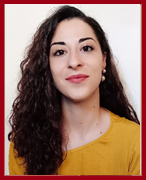
is a legal scholar and researcher specialising in criminal law and restorative justice. In 2022, she received a Doctorate in Law from the University of Aix-Marseille, France. The topic of her doctoral thesis was to explore the penological and legal interest in restorative justice and the link with criminal justice through the concrete example of the French and Brazilian cases. The comparative dimension of her research was possible thanks to a scholarship she received in 2018 from the French ambassador in Brazil, to undertake a study visit in that country. During her doctoral studies, Katerina has been invited to participate as a researcher or trainer in the following European projects: the Erasmus+ programme “CRIMHUM: Modernisation of master programmes for future judges, prosecutors, investigators with respect to European standard on human rights”, the EU-funded project “RE-JUSTICE: Sustainable training in a challenging field” and the EU-funded project “i-RESTORE: Protecting child victims through restorative justice”. In 2017-2017, Katerina was a board member of the French association Genepi, which deals with penitentiary issues, and she led socio-cultural workshops on Greek tragedies for fifteen female detainees in Marseille prisons. She has been a member of the board of the European Forum for Restorative Justice since 2018 and since 2022 she is member of the Research Committee of the same organisation.
Professionals
Daniela Donatella Acquati
Cross Cultural Awareness and Intercultural Communication Advisor, Leadership and Skills Executive Trainer, Expat Mentoring, University Professor. SIETAR International Society for Intercultural Education, Training and Research Advisory Board - Comitato dei Saggi Italia.
International background of living and working in multicultural environments (London, Madrid, New York City) with assignments spanning through Europe, Asia and Americas, building trust , successfully leading and empowering cross functional and interdisciplinary teams in multiple industries, Daniela Donatella Acquati shares knowledge, rich personal experience and cultural intelligence providing consultancy, intercultural training and guidance to individuals, corporations and organizations.
She also lectures on Intercultural Management and Competencies in Universities and Schools of Management (International Module Leadership at the European School of Economics, COIL Project Partner Professor with University of Dayton Ohio, Usa) among many.
She holds a full degree in Foreign Languages and Literatures at IULM Milano, University of Languages and Media, she is a Marketing Alumna at the School of Management SDA BOCCONI and she is Postgraduate Second Level Master’s in International Cultural Management, UNIGE Università degli Studi di Genova & MAE Italian Ministry of Foreign Office Directorate of Foreign Affairs & Cooperation (European Qualifications EQF8/QFC8)
Massimo Antonazzi
lawyer and lecturer, graduated in Law in 2006 from La Sapienza University of Rome. In 2014 he attended the frontal negotiation course at the Ecole Universitaire Internationale hostages, with the release of the Certification called COTIPSO (Certificate of Training in United Nations Peace support operations). In 2015 he obtained a second Master's Degree in Political Science, Studies Strategic and Diplomatic Sciences at Link Campus University with a study on dimension psychology of negotiation processes. In the same year he began his collaboration as a teacher with ISN International School of Negotiation. In 2017 he became an ICERM certified mediator International Center for Ethno-Religious Mediation of New York, the same year he obtained the qualification of Qualified consultant in international humanitarian law in armed conflict and crisi response Operations. He is currently adjunct professor of negotiation techniques and behavioral finance at Link Campus University Faculty of International Business Administration and adjunct professor of conflict resolution at Link Campus University's Faculty of Strategic and Diplomatic Studies.




